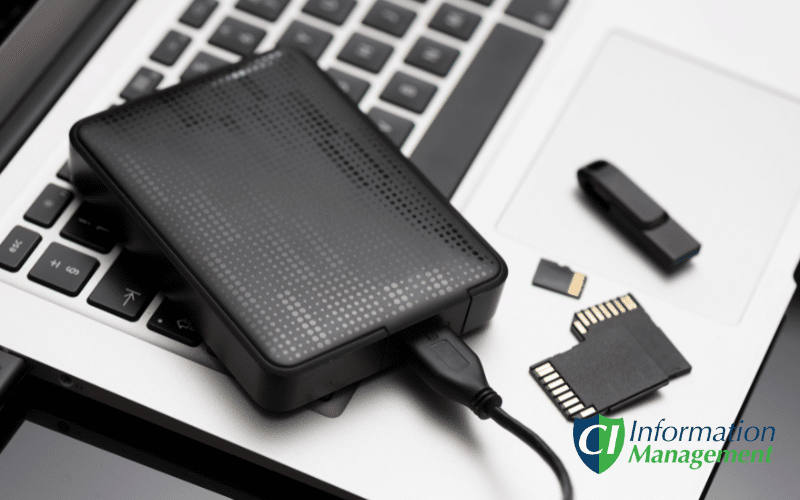A Hard Drive Story
 In June 2022, a Japanese government worker went out for dinner and drinks one night. Afterwards, his bag was stolen. In it were two USB drives that contained the personal information of 460,000 residents of the city of Amagasaki. The information included names, birth dates, addresses, tax details, and bank account information. Fortunately, the USB drives were encrypted and password-protected, but that doesn’t mean the information was impossible to access. The worker had failed to delete the information from the drive prior to leaving work and left the government liable for any information that was released.
In June 2022, a Japanese government worker went out for dinner and drinks one night. Afterwards, his bag was stolen. In it were two USB drives that contained the personal information of 460,000 residents of the city of Amagasaki. The information included names, birth dates, addresses, tax details, and bank account information. Fortunately, the USB drives were encrypted and password-protected, but that doesn’t mean the information was impossible to access. The worker had failed to delete the information from the drive prior to leaving work and left the government liable for any information that was released.
Laptops, tablets, mobile phones, and portable devices carry a great deal of information that needs to be handled properly, both during use and when they become obsolete. For the purposes of this article, we will refer to all of these devices as “hard drives.”
Hard Drive Shredding Questions
1. Are all hard drives the same?
No. There are two main types of data storage apparatus used inside hard drives: solid-state drives (SSD) and hard disk drives (HDD). Although they store data differently, they are equally vulnerable to theft.
2. Doesn’t deleting data remove it from the hard drive?
No. Deleting hard drive data only removes the pointer, a kind of directory, that tells the device where that data is stored and marks those sectors as “available.” The data itself remains on the hard drive until it is overwritten by other data. The only way to be sure the information is truly inaccessible is to shred your hard drives.
3. Am I liable for a data breach that happens after I give my hard drives to another company for destruction?
Data privacy laws state that you are liable for any personal information you have generated until it is completely destroyed. The only way to ensure that you are compliant and relieved of responsibility is to get proof of destruction. A professional, reputable hard drive shredding company will provide a Certificate of Destruction to prove that they have properly shredded your drives.
4. Does keeping old hard drives help protect them?
No, and here’s why:
a. The information they contain is still vulnerable to loss or theft. Since you are liable for all information on those hard drives, you could be fined or end up in court should the information land in the wrong hands. Keeping them is a huge risk.
b. By saving the information on those hard drives, you may also be violating retention periods for that data.
c. As new staff replace old staff in your company, it’s easy for the knowledge of what those drives are for or that they need to be protected to be forgotten.
If you’re considering wiping the hard drives to sell them, don’t. Doing this will potentially release private information that you no longer have control over but are still responsible for. Used hard drives are often bought in bulk by hackers looking for intact information they can steal and make a profit from.
5. Isn’t our company too small to worry about shredding hard drives?
Smaller companies are often more attractive targets for information thieves because they often don’t have a data protection plan in place and may not even believe they need one. However, every business that generates personal information is a potential target. Simply believing your company is at low risk does not provide you with protection against a data breach.
Digital information can be more challenging to control and protect than paper documents, and having a plan in place to protect all of your information is a must.
As you create your data protection plan, be sure to include paper shredding and hard drive shredding as the last step in the information lifecycle. Partnering with a reputable shredding company will protect you, your reputation, staff, company, and clients by keeping your company compliant with all privacy laws.
CI Information Management provides NAID AAA Certified shredding services to businesses and residents in Southeastern and Central Washington and Northeastern Oregon. We shred hard drives (HDD and SSD), microfilm, microfiche, magnetic backup tapes, CDs/DVDs/Blu-rays, floppy disks, and USB drives and supply you with a Certificate of Destruction for your records. For more information or a free service quote, simply give us a call at 509-586-6090 or complete the form on this page. Our friendly experts are ready to assist you!

